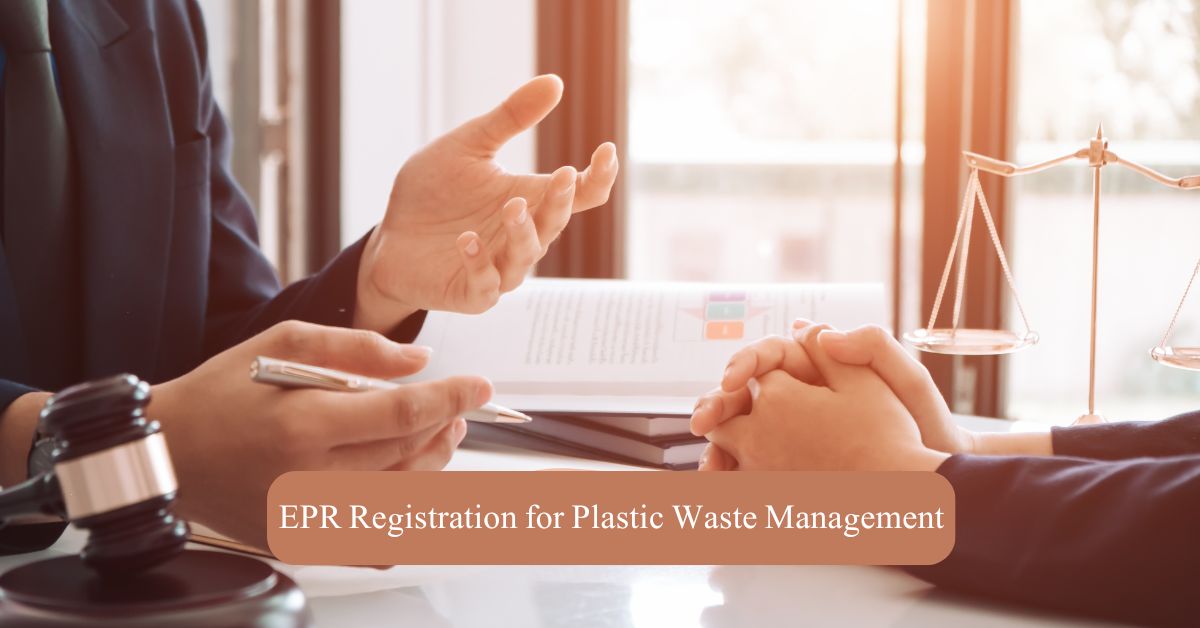
EPR Registration Rules for Plastic Waste Management
Plastic products are now all-pervasive. We have become used to it in our daily routines. The problem of plastic waste disposal is highly relevant in India. About 5.6 million tons of plastic waste is produced every year. To undertake the pressure mounting, the Government of India has instituted the Extended Producers Responsibility under the Plastic Waste Management Rules 2016.
Understanding Extended Producers Responsibility
The Extended Producers Responsibility (EPR) directs that Producers, Importers and Brand Owners, collectively mentioned as PIBOs, will be responsible for their plastic packaging waste management. It includes full utilization, recycling, or compulsions for optimum utilization to the fullest extent, such as co-processing and generation of energy from waste. By creating a basis for an organized waste management system, the amended Plastic Waste Management Rules 2022 emphasized accountability and environmental stewardship.
EPR Registration Process
The central EPR portal is developed by the Central Pollution Control Board or CPCB. The base of EPR compliance is registration on the portal.
Who Should Register?
PIBOs carrying on business in one or two states are required to register with the concerned SPCBs or State Pollution Control Boards. Those operating in multiple states must register with the CPCB.
Documentation Requirements:
The registration process demands several documents, including:
- Company PAN, GST, and CIN
- Aadhar/PAN of the authorized signatory
- Process flow diagrams (for producers and processors)
- Environmental clearances and consent from SPCBs, if applicable
Application Steps:
A) Self-Registration: Users first register on the EPR portal and create an account.
B) Filling Out the Application: Once logged in, PIBOs are required to fill out a detailed application form and upload relevant documents.
C) Fee Submission: Application fees depend on the plastic waste generation and production capacity.
D) Processing Time: The applications are processed and EPR registration certificates are issued within 15 days of submission.
Key Responsibilities of PIBOs
Once registered, PIBOs have specific obligations:
- Action Plan Submission: They should develop and submit an elaborate action plan on how they will manage their plastic waste.
- Annual Returns: Provide annual updates on their efforts toward waste management.
- Collaboration: Consult with Plastic Waste Processors, or PWPs, for processing waste better. PIBOs may collaborate with Producer Responsibility Organizations (PROs) to achieve the targets, but the final accountability lies with them.
Implications of Non-Compliance
Any violation of these EPR guidelines attracts penalties such as environmental compensation and even business license suspension. This stringent framework shows the commitment of the government to reduce plastic waste and encourage environment-friendly practices.
Understanding the EPR registration is very important for people in the plastic packaging business in India. This not only reduces harmful effects on the environment but also establishes responsibility on the part of producers. Businesses that require help with the registration in EPR can turn to dedicated consultancy services provided by leading firms like Om Garuda. This will help in efficient compliance with regulatory requirements on time. The future of plastic waste management is in collective action, and EPR paves the way for it.
